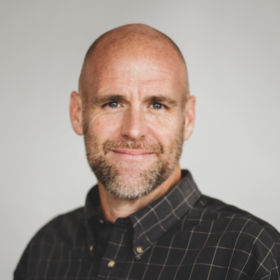Lost
Imagine you arrive in Chicago for a business meeting. It’s not until the next night so you decide to explore the city. Having never been to Chicago before, you grab a coffee, find a map, and set out exploring.
But you realize that the mapmaker made an error and put the map of Chicago under Detroit and the map of Detroit under Chicago (pretend you don’t have a phone). What do you do?
In The 7 Habits of Highly Effective People, Stephen Covey uses this story to describe how we see the world. Covey explains that no matter how we try to change our behavior or attitude, we can’t get to our destination if we’re looking at the world through the wrong lens.
Many of us live like this. We may have a vision (destination) for our lives, but the deeper we get into them, the further away from that vision we find ourselves.
We may know our destination, but it doesn’t matter if we have the wrong map.
Or maybe we don’t have a clear-cut path because we have no idea where we want to go. One day we’re chasing financial security, and the next we’re focused on becoming the parents we never had.
If we don’t know where we’re going, it doesn’t matter what map we have.
So how do we end up lost, far away from the place we intended to be?
- We listen to the wrong voice: My kids love changing the voice of my GPS. Sometimes, it’s something funny that I can still understand. But other times, it’s another language, and I have no idea what it’s saying. We’re always seeking advice from different people and places. Too often, though, we’re only looking for the answer we want to hear, not the one we really need. Seek out a trusted source or, even better, your Heavenly Father.
- We refuse to ask for directions: We joke about this, but it’s true. Many of us would rather white-knuckle our way through it than stop to ask for help. Fear and shame become our tour guides, and we find ourselves on a path we never intended. Malcolm Smith compares shame to leukemia because it allows failure to slowly destroy our lives. It leads us to navigate on our own, unable to see the consequences ahead.
- We try to take a shortcut: In my 30s, I was VP of Sales at a great company with a group of talented people reporting to me. Great money, no travel, and plenty of recognition. I had arrived. But after I noticed how much money the outside sales team was making, I thought, “Why can’t I do that? Should I spend a few years traveling and shave a few years off my plan? So, I took the job, hit the road, and began a downward spiral, ultimately leading to depression. Some shortcut…
- We blame the mapmaker. What’s our first response when things don’t go our way? We never look in the mirror and revisit the series of decisions that got us there. No, we point fingers at others and ultimately at our Heavenly Father for “allowing this to happen.” We tend to look back on the negative markers of our journey. It’s much more powerful to shift our perspective and reflect with gratitude on the high points.
My family and I recently moved back into our home after some renovations. When you move, you always uncover meaningful things. This time, it was a wooden box holding a compass and a letter, a gift from Regi when I was promoted to VP of Sales. I’d kept it on my dresser but allowed it to become common amongst the items surrounding it.
Its message was simple: North is always north, whether we follow it or not. Just as God’s direction for our lives is always there, it’s up to us to follow Him.
The compass reminded me that it’s okay to ask for directions and that true north always points directly to the Mapmaker, our Heavenly Father…
- whose grace is sufficient (2 Corinthians 12:9)
- who reminds us that he fed the birds and clothed the lilies (Matthew 6:25-34)
- who has plans to give us hope and a future (Jeremiah 29:11)
- who prepared the days of our lives before we breathed our first breath (Psalm 139)
Mentor Tip: The temptation as a mentor is to take on your mentee’s problems…you are wiser and more experienced. Remember, your role is to be a coach and encourager and to trust them to handle the outcome.
Breathe New Life Into Your Discipleship
Small group mentoring can help you engage your people, build your core group of leaders, and transform your church. Our free resources equip you with all the tools you need to launch a sustainable mentoring program.




Responses (2)
Thank you for this, Kevin. I recently was reminded about this same thing when driving from DC to NYC. My phone had me go off the regular route twice for no apparent reason. Even though I’d traveled the road more than a dozen times and knew I should just have just stayed the course, I let the little voice in my phone take me off course. Twenty extra minutes, two extra tolls, and about one hour of feeling foolish later, I realized one has to be very careful about the voices to which you listen. This led me to think about all the other ‘voices’ that demand my attention which seem to drown out God’s. Thanks for adding another great reminder.
Thank you for the response Cole. I can totally relate. I just looked at the Immanuel Project website and I love what you are doing. If you ever want to add one of our posts or link to our site, feel free. Keep doing your important and eternal work.